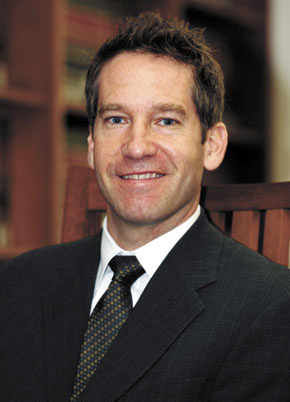SUBMITTED BY Kal Raustiala
President Barack Obama did not win overwhelmingly Tuesday night, but he did win decisively. And while foreign policy was a minor factor for many voters, polls suggest that most favored Obama’s foreign policy over former Gov. Mitt Romney’s and generally approved of the job the president has been doing abroad.
Historically, second-term presidents become increasingly focused on foreign policy. Former President George W. Bush was an exception because Sept. 11 thrust foreign policy to the forefront right away. Former President Bill Clinton’s experience is probably more suggestive. I expect Obama to increase his focus on foreign policy in the years to come.
One issue in particular, mentioned in his acceptance speech but largely ignored over the last couple of years, is climate change. Obama came into office with a strong focus on the climate crisis, but domestic political realities forced, or at least encouraged, a retreat.
Climate change was also almost entirely absent from the campaign. But we may see more attention to it in the next few years, and we should. While Hurricane Sandy cannot be clearly attributed to climate change, it is undeniable that storms like Sandy will become more common as the planet warms. And that is but one aspect of the growing and alarming climate problem.
American leadership on this issue will not solve it. But without American leadership, little can be accomplished.
President Obama may also intensify his “pivot to Asia.” For the last 11 years, the Middle East has dominated American foreign policy. While there are many important reasons for the U.S. to remain active in the region ““ not least the great turmoil there in the wake of the Arab Spring ““ there is no question that the world’s center of gravity is elsewhere.
Asia is far more economically dynamic, has a huge population and is the home of several great powers ““ most significantly, the second-largest economy in the world, China.
The U.S. physical and diplomatic presence in Asia is large and meaningful, but many friendly Asian states have felt for years that the U.S. does not devote enough time and energy to Asia. That may change further during Obama’s second term.
There are other areas in which Obama may devote more energy. He came into office with strong rhetoric on human rights; his record has been much spottier. But Obama may use his bully pulpit ““ and his much freer hand on foreign policy ““ to be more active in the area. That said, Obama is also clearly comfortable deploying American power and is no dove.
Will that mean a more aggressive stance on Syria? That seems unlikely at the moment given geopolitical realities. But in general, he has shown a willingness (see Libya) to override congressional prerogatives and has several top advisers, including his possible new secretary of state, with strong commitments to humanitarian intervention.
As in domestic policy, of course, the president does not hold all the foreign policy cards. But areas such as these are largely in the hands of the president, and we can expect Obama, having completed his last electoral campaign, to be more active, more engaged and perhaps more daring in the four years to come.
Raustiala is a professor at the UCLA School of Law and director of the UCLA Ronald W. Burkle Center for International Relations.
